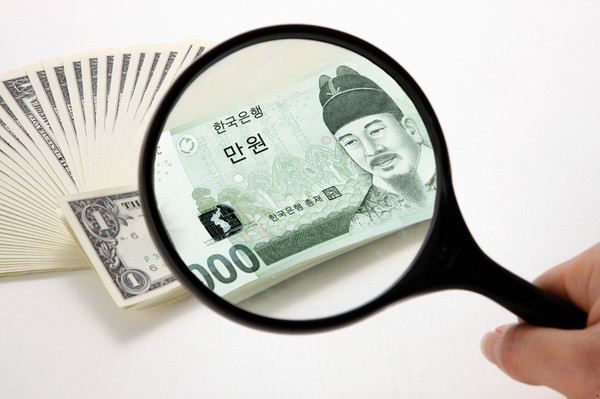Some Korean biopharmaceutical companies have benefited from local currency weakening against the dollar in the second half, mainly due to their large proportions of exports, while importers of drug ingredients suffered headwinds.

The Korean won has been sliding against the greenback throughout 2022. The won-dollar exchange rate (based on the closing price) broke through 1,300 won on June 23, 168 days after exceeding 1,200 won on Jan. 6, and surpassed 1,400 won on Sept. 22.
While the strong dollar against the won has recently calmed down, the strong dollar has had a significant impact on the performance of Korean biopharmaceutical companies.
Notably, Celltrion Healthcare earned 110 billion won ($83 million) in additional income in the third quarter alone thanks to the strong dollar this year.
In the wake of the U.S. interest rate hikes, Celltrion Healthcare, in charge of overseas sales of Celltrion products, benefited from the exchange rate fluctuations.
Celltrion Healthcare's third-quarter sales amounted to 390.5 billion won, of which more than 99 percent are from overseas sales.
Due to the depreciation of the won, the company recorded foreign exchange gains and foreign currency translation gains of 29.5 billion won and 84.1 billion won, respectively, in the third quarter.
Even after subtracting 5.8 billion won in foreign exchange losses recorded from imports, the company earned 107.8 billion won in exchange rate fluctuation income, which is more than three times larger than Celltrion Healthcare's third-quarter operating profit of 34.9 billion won.
Other Korean biopharmaceutical companies with a high proportion of exports also benefited greatly from the strong dollar.
Biopharmaceutical companies with exports exceeding 20 percent of total sales include SK Biopharmaceuticals (100 percent), ST Pharm (78.4 percent), Samsung Biologics (77.9 percent), Hugel (48.3 percent), and Medytox (38.2 percent).
Notably, the strong dollar has had a positive impact for companies that engage in contract development and manufacturing organization (CDMO) business, such as Samsung Biologics and ST Pharm.
In its business report 2021, Samsung Biologics analyzed that if the won-dollar exchange rate rises 10 percent from 1,205 won to 1,325 won, its net profit could increase by 63.9 billion won.
"Unlike other pharmaceutical companies, companies that engage in CDMO business purchase raw materials from companies designated by the commissioner and receive payment for related incidental expenses," an industry official told Korea Biomedical Review. "Therefore, the impacts of fluctuations in raw material prices due to exchange rates are limited."
In contrast, pharmaceutical companies that depend on imports for most of the drug raw materials saw their profitability deteriorate due to the strong dollar.
Traditional pharmaceutical companies such as Yuhan Corp., Chong Kun Dang, and Dong-A ST are losing money due to the weak won.
The high won-dollar exchange rate has led to some pharmaceutical companies raising prices for their flagship drugs to reduce losses.
For example, Samil Pharmaceutical plans to raise the supply price of Brufen, an antipyretic analgesic, and Actifed, a nasal congestion drug, by 7 and 10 percent, respectively, from December, to cope with foreign exchange losses.
Daewon Pharmaceutical also raised the pharmacy supply price of Coldaewon product lineup, a squeeze-type cold medicine, by 7-15 percent in September.

